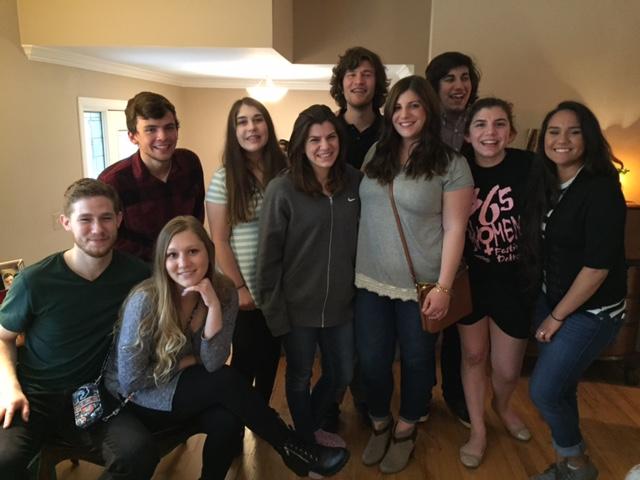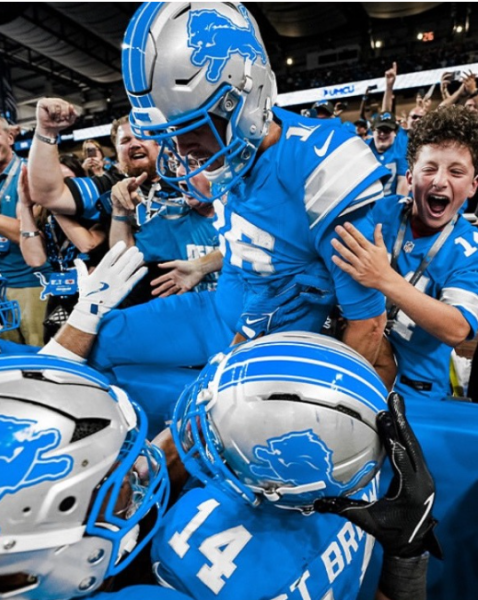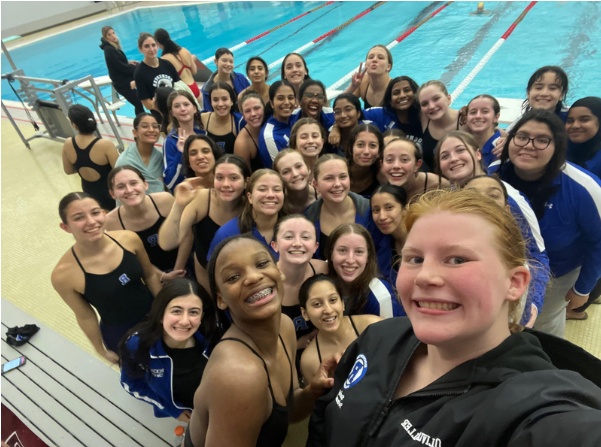Greeks celebrate Easter
The Savas family, including senior Dante Bennett, celebrates Greek Easter at his Yiayia and Papou’s home on Sunday, May 1.
May 2, 2016
When senior Dante Bennett took his dog outside on Sunday afternoon, he missed an engagement announcement, but he heard the loud cheers and was soon caught up on the family’s latest business. He was celebrating Greek Easter at his Yiayia and Papou’s house with many of his cousins, aunts and uncles.
“Our family isn’t the typical you hang out with your first and second cousins; it’s like third and fourth cousins,” Bennett said. “The family is very close knit.”
Bennett’s father realized the importance of family when he married a Greek woman, whose maiden name was shortened to Savas when her parents came to America from Greece.
“He says it’s one of the craziest things he’s ever done,” Bennett said. “[My dad] likes it, but he thinks everyone’s up in each other’s business and it takes adjusting to get used to that.”
When senior Tina Pternitis was born, her Greek grandparents disowned their daughter for a time because she had married out of the culture.
“My mother is Greek and my father is African American,” Pternitis said. “My parents’ parents were upset that my mom married outside of her culture.”
However, they came around eventually and decided family was more important. Now they help pass down the Greek traditions to their grandchildren, including at Sunday’s Greek Easter celebration.
“Papou and Yiayia had us dancing to the Zambra all night,” Pternitis said. “It’s a traditional Greek dance – kind of like a conga line where we do our footwork in a line.”
In addition to dancing, Pternitis says she enjoys other special traditions.
“We have a tradition of having a boiled egg and we butt it with another egg,” Pternitis said. “If your’s doesn’t break, you receive a year’s worth of good luck. My egg didn’t break.”
Bennett shared about the traditional Greek Easter greeting, which he learned through his Greek Orthodox Church, St. George in Bloomfield Hills.
“Let’s say I said Christos Anesti [which translates to Christ is Risen] to you, you’d say Alithos Anesti, which means truly he is risen,” Bennett said.
Of course, it wouldn’t be a Greek gathering without the food. Pternitis said the family also enjoys a large meal of lemon rice soup, lamb chops, spinach pie, pastritio (like pasta), moussaka (like lasagne) and more. Bennett confirms that food is central to a Greek gathering.
“I have a lot of Greek friends on Facebook, yesterday it was lamb, lamb, lamb,” Bennett said. “Lamb is the main course at most people’s houses. Usually all the older women in the family will cook, along with Yiayia and Papou, grandma and grandpa.”
While the cooking is happening, the kids are often getting grilled about their lives.
“You talk and get questioned by all the old people in the family about your school, why aren’t you coming to church enough, stuff like that,” Bennett said. “You know that movie, ‘My Big Fat Greek Wedding?’ It’s 100 percent accurate.”
Bennett spoke passionately about his time at Greek Orthodox Metropolis of Detroit Summer Camp (MDSC),
“They always say before you date someone at camp, make sure they’re not your cousin,” Bennett said.
A potential drawback of being Greek is nothing is secret.
“Everyone knows everyone other’s businesses,” Bennett said. “If my Yiayia knows, my Thia knows … it spreads like wildfire.”
Pternitis agrees.
“A disadvantage is everyone knowing everyone’s business,” Pternitis said. “Or when Papou is trying to set you up in an arranged marriage at church.”
Overall, Bennett says he enjoys being Greek.
“If you’re half Greek, you get two Easters,” Bennett said. “Also, you get tons of food and you have a huge family unit. You have a ton of people who are always there for you.”







